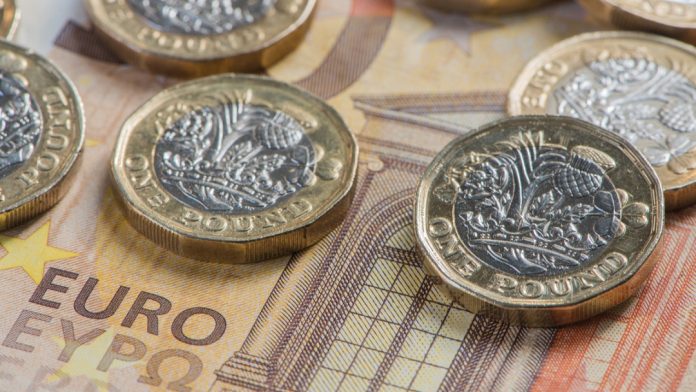- Pound (GBP) pares gains as Brexit talks end early
- UK and Euro service sector pmi data in focus and expected to show the pace of contraction slowed in June
- Euro (EUR) well supported after better than forecast unemployment figures
- Pound Euro exchange rate (GBP/EUR) slips back through €1.11
The Pound Euro exchange rate settled on Thursday +0.05% at €1.1092, down from the high of €1.1109 as vaccine optimism gave way to Brexit concerns. At 05:15 UTC today, GBP/EUR trades -0.03% at €1.1095.
Brexit talks came to an abrupt end a day early on Thursday as negotiations over the future EU – UK relationship broke down. Discussions will resume in London next week as planned. However, this is a warning sign that significant differences still exist between the two sides as the clock ticks.
EU Chief negotiator Michel Barnier confirmed in a statement that serious divergences remain. However, he does still consider an agreement possible and in everyone’s best interest a comment which is underpinning the Pound.
Attention will now turn to UK service sector activity data. Analysts are expecting the service sector purchasing managers index to confirm the preliminary reading of 47, whereby the level 50 separates expansion from contraction.
This would suggest that whilst he UK economy has picked up signififcsntly from April’s low point. However, there is still a way to go until the economy is close to pre coronavirus levels.
Euro investors will also be looking towards the release of Eurozone service sector data for clues as the progress of the economic recovery. Analysts are expecting the reading to confirm the preliminary 47.3 reading for June.
The data comes following eurozone unemployment data in the previous session showed that the downturn in the Eurozone labour market slowed in May, with the unemployment rate inching high to 6.7% across the EU. This is the highest level that unemployment has been at in 8 months. However, it is still lower than what analysts predicted.
This data combined with figures that have shown consumer spending rebounded quickly, combined, are encouraging market participants to believe that the EU economy could be recovering quickly from the deep coronavirus recession.





